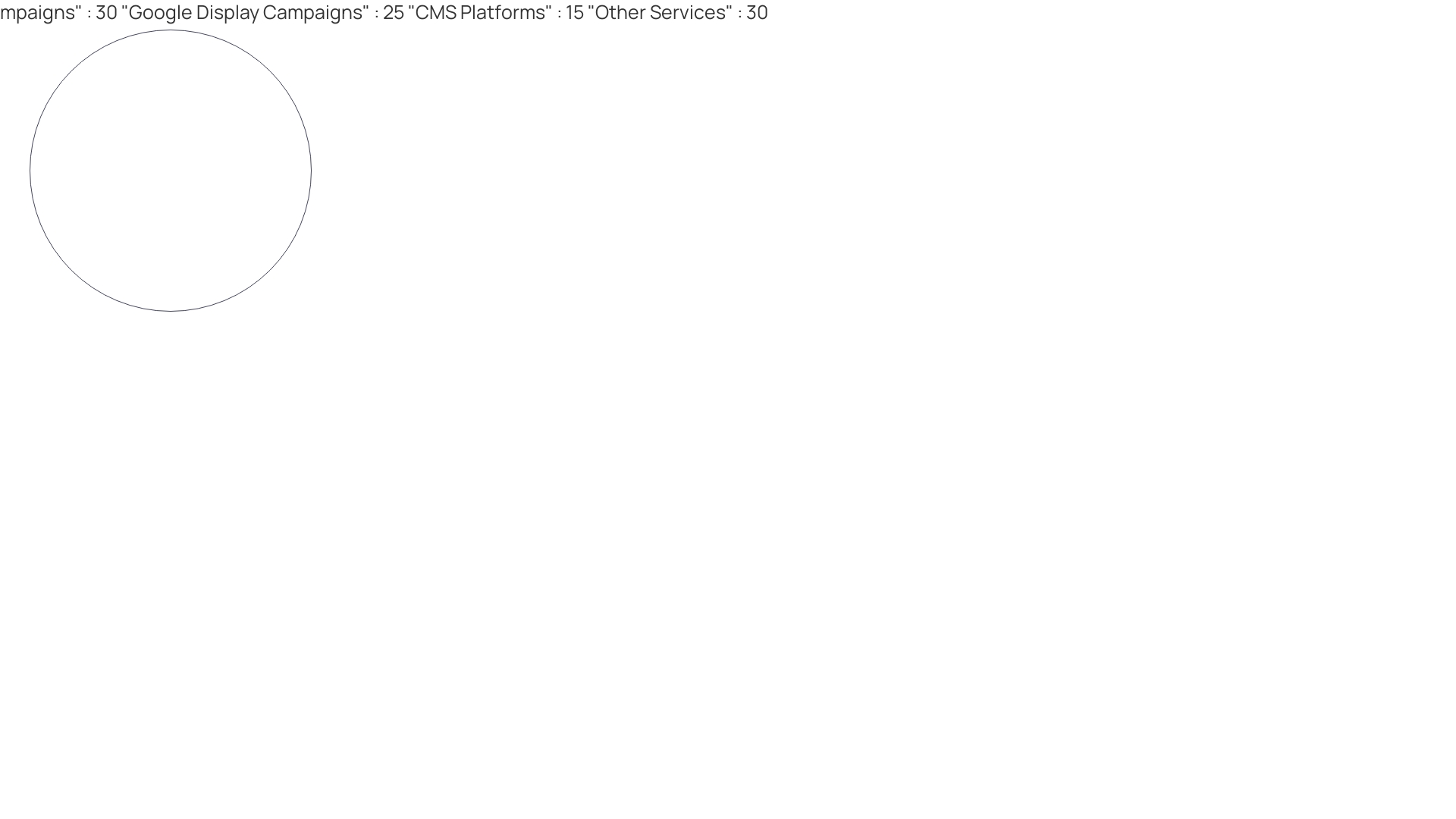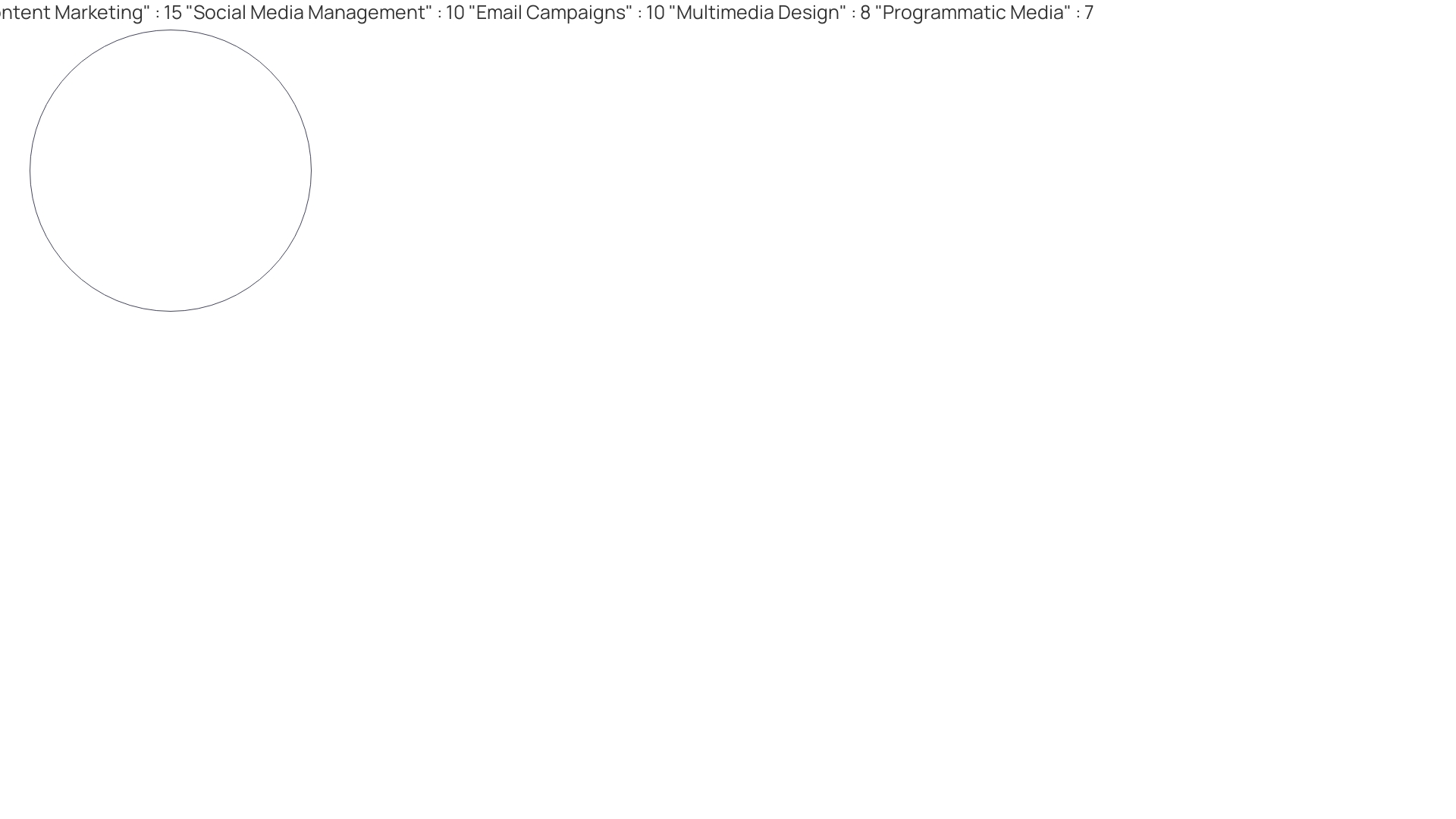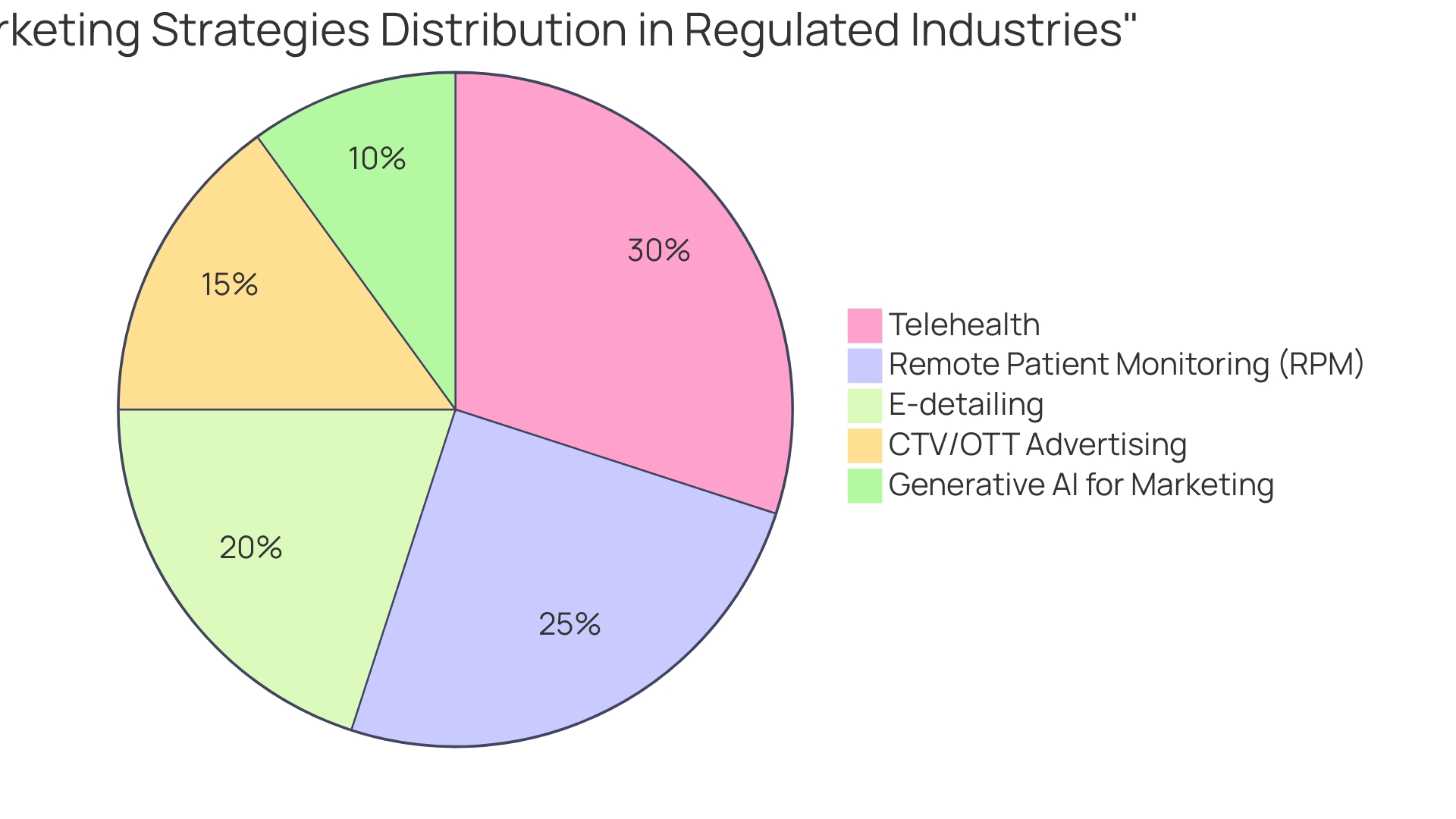Introduction
The landscape of digital marketing services is a complex and dynamic one, with costs fluctuating based on a plethora of factors. In this article, we will explore the various factors that affect the cost of digital marketing services and how businesses can navigate these considerations.
From the scope of services and target audience to geographic location and industry niche, we will delve into the intricacies of pricing in the digital marketing industry. By understanding these factors, businesses can make informed decisions when investing in digital marketing services and ensure optimal returns on their marketing investment. So, let's dive in and unravel the mystery behind the cost of digital marketing services.
Factors Affecting the Cost of Digital Marketing Services
The landscape of digital marketing services is a complex and dynamic one, with costs fluctuating based on a plethora of factors. A comprehensive survey of over 300 agencies across the US and Canada has revealed a shift towards a hybrid billing model, indicating a move away from flat fees to more flexible pricing structures. This trend reflects the multi-faceted nature of digital marketing services, including the need to cater to a diverse range of client requirements and marketing strategies.
For instance, a case study of a hotel company looking to increase bookings illustrates the intricacy of developing an effective digital marketing campaign. The tailored approach involved a combination of PPC campaigns using diverse keywords and Google Display campaigns targeting specific audience segments, such as in-market and affinity audiences. Such strategies underscore the importance of a foundational strategy before further advertising, which in turn affects cost.
Agencies report that 93% of their clients engage in multiple services, with 34% utilizing an average of four or more. This bundling of services can lead to increased client retention and opportunities for upselling, which also plays a role in pricing. Moreover, the decision by Salesforce to raise their prices, amidst a trend of increased investments in generative AI, signals an industry-wide recognition of the value added by advanced technology to marketing services.
As digital marketing becomes increasingly ubiquitous, with mobile accounting for over 50% of global web traffic in the first quarter of 2023, it's clear that the cost of these services is not only about the immediate expense. It's an investment in the future of a business, leveraging cutting-edge tools and platforms that account for a significant portion of marketing budgets. In fact, enterprise companies allocate about 28% of their marketing budget to CMS platforms, with North America leading in market share for these platforms.
When considering the cost of digital marketing services, one must weigh the potential for enhanced marketing performance against the price. As one expert puts it, a slight increase in investment can lead to substantial improvements in outcomes. Therefore, businesses must evaluate the balance between cost and value, considering factors such as the use of innovative technologies like AI and the expertise provided by agencies.

Scope of Services
Understanding the cost of digital marketing services requires a comprehensive look at the scope, which significantly influences the overall investment. For instance, a hotel company looking to increase bookings might require a combination of Pay-Per-Click (PPC) campaigns, targeted Google Display ads, and a robust content marketing strategy.
This integrated approach, which might include social media management, email campaigns, and multimedia design, calls for a broad set of skills and resources, leading to higher costs. Industry data indicates that the average hourly rate for a digital marketing agency can range from $200 to $250, reflecting the depth and breadth of services provided.
In contrast, assembling a team of midrange freelancers to cover all necessary digital marketing activities could cost approximately $1,125 per hour. With the digital landscape evolving, 92.3% of users now access the internet via mobile, accounting for more than half of global web traffic in early 2023.
This shift underscores the importance of mobile-optimized marketing strategies, which can also affect costs. Moreover, an annual study has revealed that companies allocate an average of 9.1% of their sales to marketing strategies, highlighting the significant investment businesses make in digital marketing efforts. With nearly half of all marketers planning to increase their budgets, especially in online tactics, it's clear that the scope of digital services directly correlates with the costs incurred. However, efficient investment in programmatic media could result in substantial savings, with potential efficiency gains estimated at $22 billion. This demonstrates the dual need for comprehensive digital strategies and cost-effective implementation.

Target Audience and Market Competition
Navigating the domain of digital marketing services can be complex, especially when considering the influence of market competition and the size of the target audience. For businesses operating in competitive industries, the stakes are high.
To effectively capture the attention of a broad audience, comprehensive and strategic marketing efforts are necessary, often requiring substantial investments. A case in point is a hotel company that struggled to make an impact with Google Ads.
In their quest to enhance bookings, they realized the fundamental importance of establishing a solid foundation for their digital marketing operations. By adopting a targeted approach with carefully selected keywords and audience segments, they found success in reaching and engaging their ideal customers.
Moreover, as digital marketing continues to evolve, the price of staying ahead in the game also changes. With the advertising industry projected to grow to $360 billion in 2023 and digital platforms accounting for 64% of this, businesses must be prepared to allocate sufficient budgets to their digital marketing strategies. This is crucial not only for reaching the right audience but also for adapting to the increasing number of marketing channels—expected to double from just a few years ago. As experts suggest, a modest increase in marketing investment can lead to substantial gains in performance. Therefore, it is imperative for companies to consider not just the cost but the value and potential ROI that expertly crafted digital marketing services can deliver.
Geographic Location
Understanding the factors that influence digital marketing costs is crucial for any business seeking to optimize its online presence. A key consideration is the geographic location of your business and its target audience. For example, agencies in regions with higher living costs may charge more for their services.
Moreover, the necessity for localized marketing campaigns can further impact the budget. A study of digital marketing agencies revealed that nearly half have adopted a hybrid billing model, which may offer some flexibility in managing service costs based on location-specific needs. Case studies illustrate how geographic targeting can be pivotal.
Menholt Auto Group's success in Cody, Wyoming, despite its small population, exemplifies the power of strategic digital advertising. They expanded their reach to Billings, Montana, by identifying gaps in brand availability and targeting specific inventory to the area, effectively increasing their sales. Similarly, a hotel company improved its booking rates by developing foundational digital marketing strategies before implementing targeted advertising campaigns.
The importance of mobile optimization for local businesses cannot be overstated, as 92.3% of users access the internet via mobile devices, and over 50% of global web traffic in Q1 2023 came from mobile. Local digital marketing tips suggest having a mobile-friendly website to ensure visibility in mobile search results. With marketing budgets constituting 9.1% of company sales in 2023, according to CMOS, it's essential to allocate funds wisely, considering the role of strategic geographic targeting and the potential of local digital marketing initiatives.
Industry and Niche
Navigating the complexities of digital marketing in highly regulated industries, such as healthcare and finance, requires a nuanced approach. For instance, the healthcare sector has seen a significant transformation due to the integration of digital technologies like telehealth and remote patient monitoring (RPM), which became indispensable as the pandemic demanded a swift pivot to virtual care. The surge in e-detailing—a method for engaging healthcare professionals via mobile devices with interactive and relevant content—underscores the industry's shift towards digital-centric strategies.
Moreover, a survey emphasizing the uptick in CTV/OTT advertising within healthcare illustrates the sector's diverse marketing tactics to engage consumers. The adoption of generative AI for marketing assistance by over 60% of healthcare professionals indicates a trend towards more sophisticated and personalized marketing solutions. In such an environment, the cost of digital marketing services is influenced by the need for specialized strategies that comply with stringent regulations, protect patient data, and provide valuable interactions.
Additionally, the market's competitive landscape, with strategic partnerships and niche focus, adds layers to the cost structure. For example, the narrative of a business owner who invested $108K in a website, only to redesign it within a year, highlights the pitfalls of not aligning marketing strategies with industry-specific needs. Quality services, although sometimes more expensive, can yield substantial organic traffic and conversions, emphasizing the importance of considering the full spectrum of an agency's offerings rather than just the price.
Statistics further reveal that while North America leads in digital marketing due to its advanced infrastructure and tech-savvy population, the Asia Pacific region is rapidly catching up, fueled by digital adoption and an expanding online user base. Challenges like data privacy and the fast-evolving digital tools landscape present hurdles, yet they also open doors for innovation and new marketing technologies that align with user preferences and regulatory standards. This dynamic landscape influences the cost of digital marketing services, as businesses must invest in strategies that not only reach but also resonate with their target audiences within these heavily regulated industries.

Agency Expertise and Reputation
Selecting a digital marketing agency with a sterling reputation and deep expertise is a decision that can affect your marketing investment. Agencies that have demonstrated consistent success, such as Atos, which restructured its marketing approach to gain a competitive edge, often come with a higher price tag.
However, this cost reflects the seasoned experience they bring to the table, having refined their strategies through real-world application. The use of advanced technologies also plays a crucial role in the valuation of their services.
As marketing evolves, agencies that adopt innovative tools like artificial intelligence can deliver more effective and efficient campaigns, albeit at a premium. But it's not just about the technology; the human element is crucial.
Having a dedicated representative who is effectively part of your team can greatly enhance the service quality, justifying the investment. Consider the insight from Dr. Richard Girling on the importance of client retention and the value of referrals in acquiring new clients. These elements of trust and proven performance can be instrumental in selecting an agency. Moreover, the recent "Cost of the Agency Pitch" report by the Association of Advertising Agencies reveals the significant time and productivity costs associated with switching agencies. It's advisable to weigh these factors when considering the costs of digital marketing services, viewing them not merely as expenses but as strategic investments in your business's growth and future success.
Conclusion
In conclusion, the cost of digital marketing services is influenced by various factors that businesses should consider when making investment decisions. The scope of services plays a significant role in determining the overall cost, as businesses with more complex and integrated strategies may require a broader set of skills and resources.
Additionally, the target audience and market competition impact costs, with competitive industries requiring comprehensive and strategic marketing efforts. Geographic location also affects pricing, as agencies in regions with higher living costs may charge more for their services.
Localized marketing campaigns can further impact the budget, highlighting the importance of strategic geographic targeting. Furthermore, industry and niche considerations must be taken into account, especially in highly regulated sectors like healthcare and finance.
Specialized strategies that comply with regulations and provide valuable interactions contribute to the cost structure. The expertise and reputation of the digital marketing agency are crucial factors to consider.
Agencies with a proven track record and deep expertise often come at a higher price but bring valuable experience to the table. Advanced technologies like AI can also impact pricing but can deliver more effective campaigns. It's important to have a dedicated representative who becomes part of your team to enhance service quality. Ultimately, businesses must evaluate the balance between cost and value when investing in digital marketing services. A slight increase in investment can lead to substantial improvements in outcomes. By considering these factors and viewing digital marketing services as strategic investments rather than mere expenses, businesses can ensure optimal returns on their marketing investment and pave the way for future growth and success.





